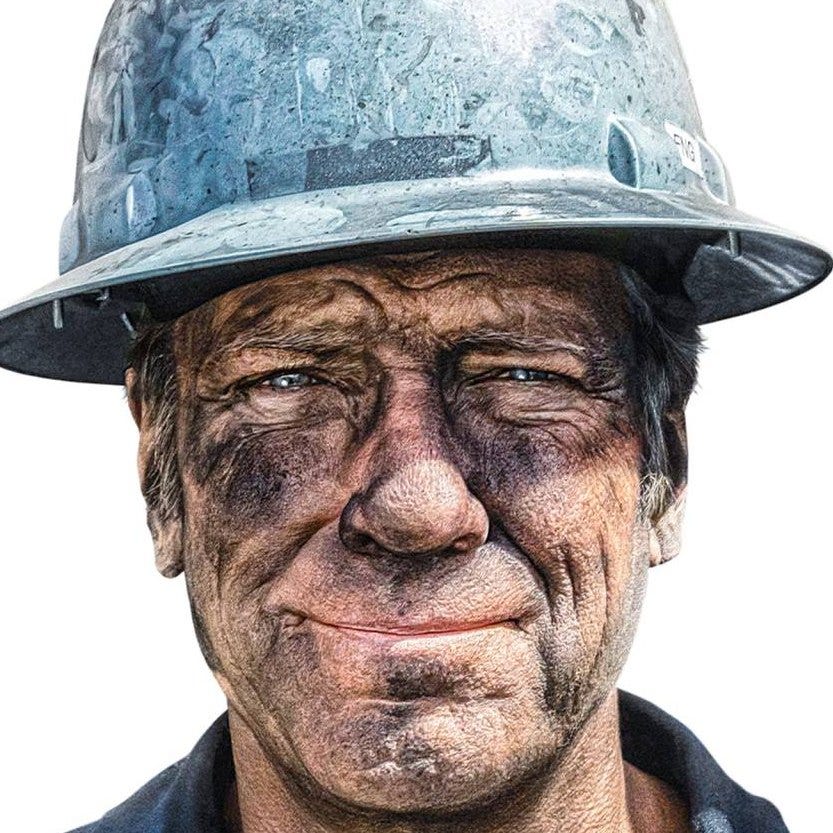The Turning Tides
The number of young American wrench-turners is swelling, just like Mike Rowe wanted.
Before getting to the meat of today’s newsletter, I wanted to let you know that I was graciously invited by — best-selling author of multiple books and author of The Commonplace Substack, high school English teacher, and Catholic pilgrimage leader — to have a conversation about working with our hands on her podcast, A Drink With a Friend. Our conversation is live and you are warmly invited to listen to it here:
…or on Spotify:

When I began my career as a plumber at the beginning of 2014, a certain syrupy-toned television host and voiceover artist had already spent years advocating for the dignity of working with one’s hands. Since making a name for himself singing on stage with The Baltimore Opera and honing his on-camera hosting chops at QVC, Mike Rowe has put his much-deserved clout in service to ennobling blue collar careers: Dirty Jobs, Somebody’s Gotta Do It, Deadliest Catch — they comprise multiple chapters of his love letter to the trades. Mr. Rowe has been called upon to go before both the House and the Senate and speak to what has been called the “skills gap” in America — the growing chasm between the general population and the skills that allow that population to work in manual labor roles — and the economic ramifications of that gap. He even has a foundation that awards work ethic scholarships to those who are opting for a technical, rather than an academic, education.
And it appears his labor has not been in vain.
Now I have no illusion that Mike single-handedly changed the culture’s view on blue collar work. Of course he didn’t. But he’s been banging his drum with singular focus for over two decades now, so when a certain recent global event happened, I believe our population was primed to hear the melody Mike had been devotedly canting for twenty-something years. People were at home more than they ever had been and for many this sparked the realization that, “hey, this joint’s in pretty shoddy condition,” followed quickly by, “maybe I can try my hand at fixing this…” which landed most people in one of two camps: “holy crap, I can!” or “&*@^, call the plumber!!” This was accelerated not only by interest — can I or can’t I do this in my new-found free time — but by necessity: ACs were called upon to condition more cubic feet of air than they had before; toilets were being flushed more than they had before; Amazon trucks were being driven more miles more frequently than before; and on the list goes. Add to this mix a subset of people who, upon reflection, could no longer avoid the sense that they were in a line of work that either did not fulfill them as they had hoped or was actively dehumanizing them in some way or was no longer in demand due to the changing economic circumstances.
Curiosity and demand and vocation and market. What a combination.
At the same time you have AI and software developers with unprecedented pressure to automate anything and everything possible and essential work crying out for essential workers; legions of disembodied agents being designed and built and hordes of embodied agents being catalyzed and deployed. And in and through it all, there’s Mike Rowe jaunting about in poo-smudged coveralls like a blue collar Tom Bombadil, cheerfully singing to himself and whomever falls within earshot of the delights and dignity of handwork.
Is it any surprise, then, that we are beginning to see headlines announcing the rise of skilled labor?
I have a Google Alert set up that scans the internet for articles that contain certain key words or terms: “blue collar,” “skilled labor,” “manual labor,” “plumber.” Increasingly, I am seeing results that point to something we all knew had to happen eventually and now appears to actually be happening — a swell in reported interest in the trades and enrollment in technical schools.
Lincoln Tech, a school for skilled and healthcare trades, has twenty-two locations across thirteen states with new locations in various stages of planning elsewhere in the country. In an interview with Fox Business's Stuart Varney, Lincoln Tech CEO Scott Shaw shared some of the demographic information related to their enrollment. “About 20% of our students are right out of high school, about 50% are 21 and younger, but the average age of our students is 25, so we have a lot of career-changers [and] people that have tried college and it just wasn’t right for them…”
This tracks with my own experience. By some measures, the age range of Gen Z is anywhere from 12 to 27 right now. In my employer’s trade academy, for which I serve as a plumbing instructor, our oldest HVAC apprentice is 58 and our youngest turned 21 last month. I occasionally receive messages or emails from people wanting to make a switch to the trades but unsure as to the feasibility of such a move. “I’m already 27.” “I’m already 34.” Mileage may vary, but I love pointing to our 58 year old and saying, “He’s crushing it. You can too.” That said, that vast majority of our trade apprentices are between 22 and 30.
Gen Z is now being called the “toolbelt generation” by some because of the swelling numbers of the youngest cohort of our workforce returning in droves to wrench-turning and various forms of skilled labor. See this article at The Wall Street Journal or this article at NPR for discussions on this trend.
In a fascinating survey by think tank New America, participants were asked about their perspectives in relation to the job market and education levels. Over half of Gen Zers surveyed believe that there are well-paying jobs for people that only have high school-level education or a GED (see graphic below). When asked whether they agreed it’s easier to find a job with a college degree or a technical certification, those that agreed with one or the other were about equal. Gen Z is seeing that while college might be a good path to a well-paying, stable job, it is not the only path. Varney opened his interview with Scott Shaw by saying that technical schools had seen a 16% increase in enrollment. The tides truly do appear to be turning.
The conversation as it is happening broadly still doesn’t touch on some of what I think are the more salient reasons to enter a career in the trades — becoming whole, becoming handy, becoming dependable — but hey, I’ll take what I can get. With Mike Rowe still out there drawing attention to Gen Z’s shift into the blue collar world, maybe the discourse will take a turn for the philosophical rather than merely dwelling on the economic. After all, these teens and young adults are choosing this career path. It is increasingly rare that one takes up a trade because his daddy did it and his daddy before him. I would like to think that some of these young stud rough-ins are of a more thoughtful, reflective variety and might be drawn to the possibility of cultivating a rich interior life as a result of grasping pliers and hammers.
But maybe that’s too much to hope for. In any case, we knew we needed the younger generation to step into the skills gap and prevent things from quite literally crumbling around us, and it appears that they just might have the moxie, the gumption, and the spiritedness to get it done.
Time will tell but they may yet live up to the name that would make Tim “The Tool Man” Taylor proud: the Toolbelt Generation.










Ohmygosh. I've been having a slight internal freakout that the trades are shrinking, so I am thrilled to hear this news!
I am so glad you are posting your good stuff again. I missed you.